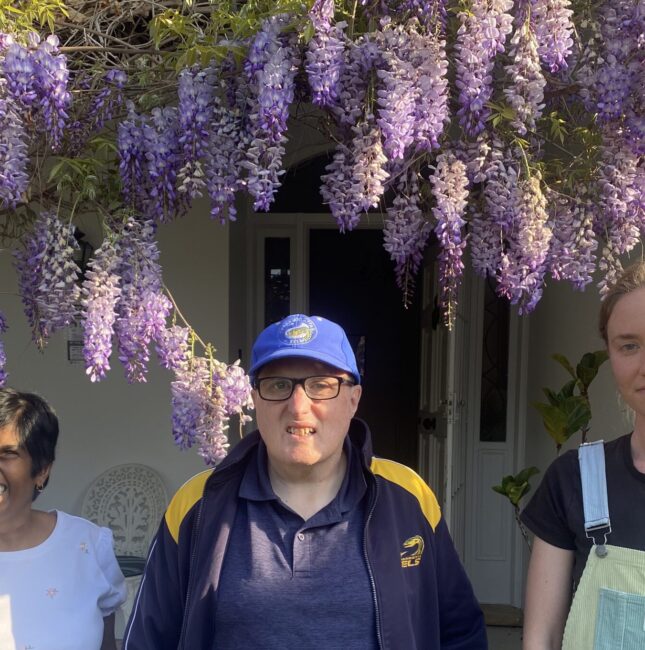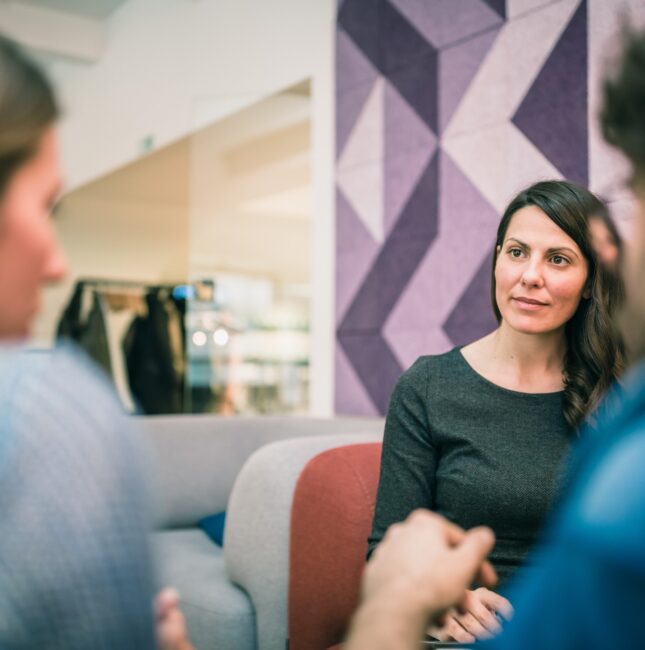My Buddy – an encounter with homelessness, from a privileged perspective
June 4, 2019
Prompted by a good friend to keep my promise of a random act of kindness, the following encounter unravelled.
Dashing to the supermarket a few months ago, I noticed a man sleeping rough on a public bench. Presenting as homeless, and obviously down on his luck, I hastily thrust $10 in his direction and routinely asked him if he was okay. In short, it seemed that he had long since disengaged from the busy world around him. His pain was clear – socially isolated and drowning in his sorrows, he was merely just surviving. After I arrived home, I continued to contemplate his tenuous and vulnerable existence.
Over the next 11 days, acting in the role of a member of the public, I continued to re-visit that man on the bench, whom I later called Buddy. Always announcing my arrival from a distance and approaching with caution, I regularly delivered meals and basic supplies to him, stopping briefly to discuss his general wellbeing and ongoing needs.
I did not know of Buddy’s past and nor did I need to. I could only speculate as to how his life could have spun out of control, spiralling forever downward. If he had gradually lost connections with the imperative support network of family and friends, he could have ended up feeling distressed and alone. Buddy might have considered himself an outcast, resulting in an ongoing struggle with his new normal position, having nowhere to go to and no one to turn to for help. It also could be possible in the years that subsequently followed, that he experienced profound loneliness living on the streets, only to become depressed and exhausted. Intermittently over that period, perhaps he was lucky enough to receive a few nights of respite, in emergency accommodation. If that were the case, its likely that after each short stay, he could have been further traumatised by his abrupt return to living a life on the fringe of society, facing nature’s harsh external conditions.
Following on from his stay, as the system dictates, Buddy would have had to apply for social housing. Further to that, he must have received the crushing news of an expected 5 year wait list. A genuine desire to return to a purposeful life, with paid employment and a contribution back to society, could have seemed illusive. From his homeless perspective, a dream to once again live in secure, stable accommodation, would have appeared totally beyond his grasp.
Compounding to his everyday challenges of a life on the move, unwittingly, Buddy could have lost a wallet, mobile phone, or most crucially, his ID. Having no ID meant he would have become ‘invisible’ to the authorities of social assistance. Frustratingly, not only would he then have been unable to seek paid work through nearby employment agencies but additionally, his vital monetary entitlements would have been totally inaccessible. If he had indeed experienced any such scenario, his soul-destroying journey could be the reason for rendering him as destitute. Therefore, by the time I first came into contact with Buddy, it would be understandable why he just sat and waited with his eyes cast to the ground. Cradling his head in his hands, he was trying to process his bleak thoughts.
Perceiving that Buddy had lost the will, energy and motivation to help himself, I did some research on his behalf. Without imperative ID or specialised help from a social welfare group, I soon discovered just how limiting the options were for people in Buddy’s situation. By operating independently, hope of one day escaping his dire living predicament seemed futile. Social welfare groups appeared to be the appropriate avenue to help him access the necessary long term, stable housing that he needed. His destitute status, together with their informed guidance, might hopefully mean his social housing application would be prioritised. Utilising their experience and proficiently to navigate the system, could be pivotal in achieving a successful outcome for Buddy. It was therefore, that I approached CatholicCare Diocese of Broken Bay for help. Informed that they were overwhelmed by need, I relentlessly pleaded his case for their assistance. As their workers were struggling with heavy caseloads, they would not be able to see Buddy until early the following week. Over the weekend, both he and I waited patiently for what felt like an eternity.
During this initial research, I became aware of the monumental task facing some of our society’s most disadvantaged people, enduring episodes of homelessness. In a frantic race to secure available social housing, they are caught up in a chronically overburdened system that, incomprehensibly, continues to deliver a major short fall in the supply of this most critical accommodation.
Meanwhile, to assist Buddy further, I phoned a contact, experienced in the social welfare sector. Following her advice, in order to improve Buddy’s accessibility to and connection with services, I provided him with some credit on both a mobile phone and an Opal travel card.
By then however, with no tangible end in sight, an already disheartened Buddy, had grown restless and talked of moving on. I fretted that he might suddenly disappear and forfeit any essential help. I finally managed to convince him to stay, promising him my continued support and involvement. Resigned to his dilemma, he sat silently, whilst I frantically attempted to conjure up some almost magical, very urgent intervention.
Fast running out of ideas and fearing that Buddy may inevitably move on regardless, as a last resort I drove to our local MP’s office. Tired and emotional over Buddy’s plight, I relayed my recent encounter with him to the sympathetic secretary. She acknowledged that the office was already aware of increasing numbers of people moving into the area, who were experiencing homelessness. Knowingly, she reassured me that CatholicCare had been alerted to Buddy’s plight, knew of his location, and that they intended to visit him that day. Armed with this positive news, I left the office thankful that my homeless friend would soon regain some dignity and be offered the help that he deserved.
I had only known Buddy for a total of 11 days. He had placed his trust in me. I had given him a reason for optimism, a vision that he may one day secure access to safe and stable shelter. At times, I had not been sure that I would be able to achieve this for him.
Since I came across him, exhausted and vulnerable, Buddy had always treated me with courtesy and respect. Even in his time of such great suffering, he demonstrated immense gratitude and expressed his heartfelt thanks. It was more than I could have expected – he had nothing left to give.
It’s now Friday afternoon and Buddy has humbly agreed to the assistance offered by CatholicCare. Waiting for their compassionate case workers to collect him, this time he waits ever more patiently, relieved that he will receive the targeted services he needs, whilst he is initially housed in transitional accommodation. Hopefully thereafter, he will be fortunate to experience the comfort and inner security derived from living in long term, safe and stable accommodation.
One of the last times I saw him, I hugged Buddy a teary goodbye, wished him luck, and joked that I couldn’t wait to see the back of him. To my surprise, I heard a subtle laugh, emanating from within him. It was a laugh tinged with hope, reflective of a person experiencing a renewed sense of self.
My lasting wish for Buddy is that he will regain his former strength and flourish.
Perhaps, in the not too distant future, he will be able to acknowledge that he is not merely just surviving but once again, thriving. In due course, he may even come to know the personal rewards, gained from the giving of, a random act of kindness. Then ultimately, he will also feel empowered by the pleasure and privilege that comes from having helped a buddy, like my Buddy too.
Written and submitted to us by a member of the public.
CatholicCare offers a number of services for those experiencing homelessness – a women’s refuge, transitional accommodation and casework support, outreach support, Mary Mac’s Place and more. Please call us on (02) 9481 2600 for more information.
More news stories like this one
Mark has greater control
It's been a year of change and growth for Mark, who is a proud resident of CatholicCare’s newly established Supported Independent Living house in Wahroonga. Upon being asked what he most enjoys about living at Kokoda House, Mark says, “everything!”
Read MoreLet’s talk about invisible disabilities
When you think of the word, ‘disability’ what do you see? Perhaps you envision someone in a wheelchair, or a person walking with a cane. The reality is that for 90% of people living with a disability in Australia, their disability is invisible.
Read MoreMediation gives Amanda & David breathing space
When Amanda first contacted CatholicCare for help with property mediation, her life was nothing short of chaotic. “You name it, it had happened,” says Family Dispute Resolution Practitioner Melanie.
Read More


